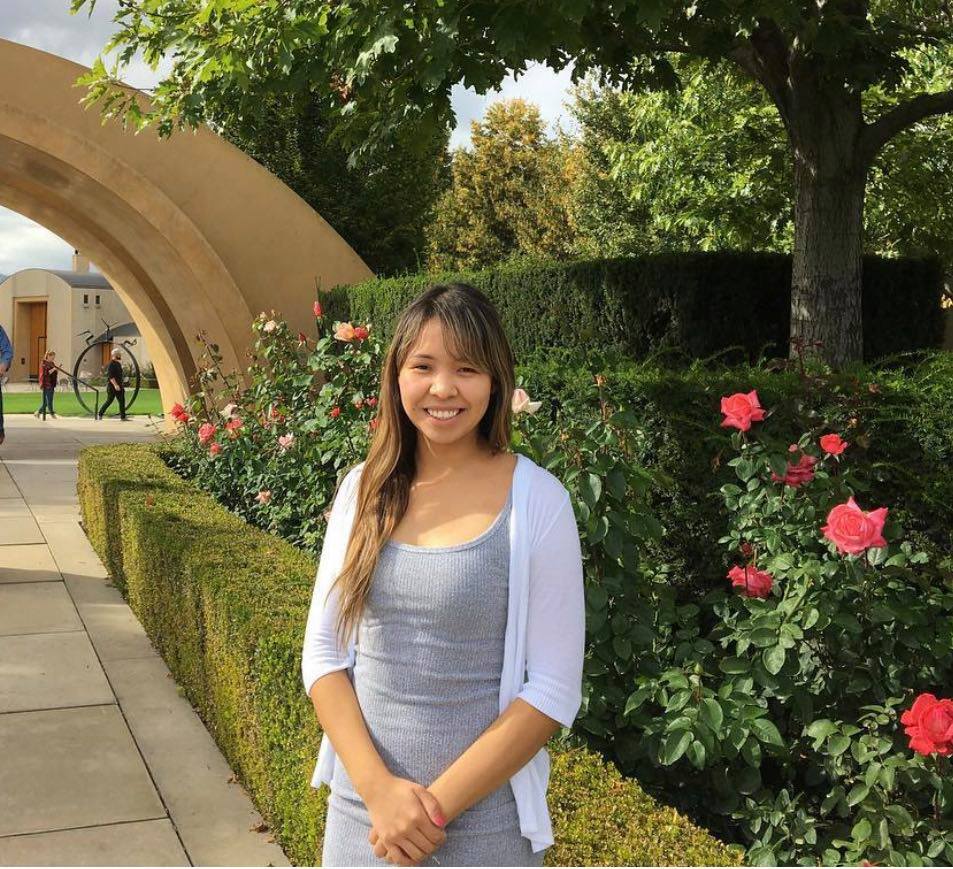Transition Year Program participants successfully navigate first year of nursing with a little help from a new graduate teaching assistant
By Sasha Roeder Mah - 17 May 2022

First-year nursing student Makayla Mantla has known since she was a little girl that she wanted to be a nurse. And while her journey there may be taking a little longer than the typical route, today she remains every bit as passionate about her goals as when she was a child.
“Every time I think about being a nurse, I feel like crying!” says Mantla, tearing up a little as she talks. “This is how I know I’m doing what I’m meant to be doing.” What keeps the 27-year-old motivated is her unflinching determination, optimism and work ethic. But it’s also the backing she has received along the way from her family and from the network of supports in place at the University of Alberta.
Mantla chose to enter the U of A through the Transition Year Program (TYP), which supports Indigenous students for whom the regular admissions route into a degree program may be a barrier. These Open Studies courses are designed to prepare students to be admitted into the faculty of their choice.
Mantla grew up in Yellowknife, NWT, but to invest in a better future for her and her four younger siblings, her parents moved the family to Edmonton when she began high school. That brighter future did lie ahead, but for seven years after high-school graduation it was difficult for Mantla to glimpse. “Because I put my family first, I wanted to make sure we always had food on the table, so I had to start working right after high school to help support my family,” she recalls. “I put nursing at the back of my mind.”
When she eventually entered NAIT to do some upgrading, Mantla finally allowed herself to start dreaming about her future again. “Since I have to upgrade everything and start from the bottom anyway,” she figured, “this could finally be my chance to go for nursing. I knew this was going to be a long journey, but I know I’m meant to be a nurse.”
Connecting to culture
The TYP was the perfect choice for Mantla, the first person in her family to attend university. She is grateful for the program’s introductory courses. But most important to her was the virtual gatherings offered through First People’s House, which helped her shed years of shame and self-doubt about her cultural identity.
“For many years, I didn’t feel proud of my culture,” she says. “I didn’t feel connected to my culture. I remember hearing ‘First Nations people aren’t smart; we’re not meant to go to school.’ Being part of TYP made me feel closer to my culture, and that was a warm and welcoming feeling that I’ve never really felt before.”
But, says Mantla, it’s the support she and her fellow students have received since, from graduate student teaching assistant Lily Lu, that made the first year in nursing such a positive experience.
A passionate advocate lends support
Lu, a master’s student in the Faculty of Nursing, took on the new role of teaching assistant to the three incoming nursing students from TYP in September and was recently recognized for her work with a 2022 Graduate Student Teaching Assistant Award. Her support for the students included writing study guides and assignment checklists, leading study sessions and offering one-on-one feedback on assignments. She also facilitated communication between the students and their instructors when needed, and was an impassioned advocate for them, doing whatever she could to help them succeed.
Lu is motivated in this work by a combination of personal passion and professional experiences. “I know there are a lot of historical barriers to Indigenous students pursuing higher education,” she says, “and I feel passionately about helping to support their success. Supporting more Indigenous enrolment in nursing and indeed in all the health-care streams is just one small step in righting historical wrongs and ensuring better care for all.”
Increasing opportunities for enrolment will help ensure there are more Indigenous nurses in the clinical setting to provide patient-centred, culturally appropriate care to Indigenous families, she adds.
Helping the students keep that end goal top of mind was very important to Lu. Whenever they have struggled, she would reassure them: “Maybe you won’t know all the questions on the final exam. But you are learning to be a nurse and provide the kind of care your patients will need and deserve.”
Building a brighter future for all
Mantla doesn’t see a lot of people with her background working in professional roles like nursing, and she’s excited to be a part of changing that. As a registered nurse, she will serve her community with pride, she says. “I look forward to the day when I have First Nations patients who may have had bad experiences in the health-care system; it will be a privilege to make things better for them.”
For now, as she continues on her path to that bright future, she wants nothing more than to be a role model for other Indigenous youth who want to pursue post-secondary education but don’t know how they fit in that world. “I feel like I’m so blessed to be where I am today,” she says, “and I want to use that to motivate others.”
The University of Alberta is the top institution in Canada for nursing and is ranked ninth worldwide according to the latest QS World University Rankings by Subject. Join us and be a part of a community changing the face of global health: https://www.ualberta.ca/nursing/careers/joining-us.html